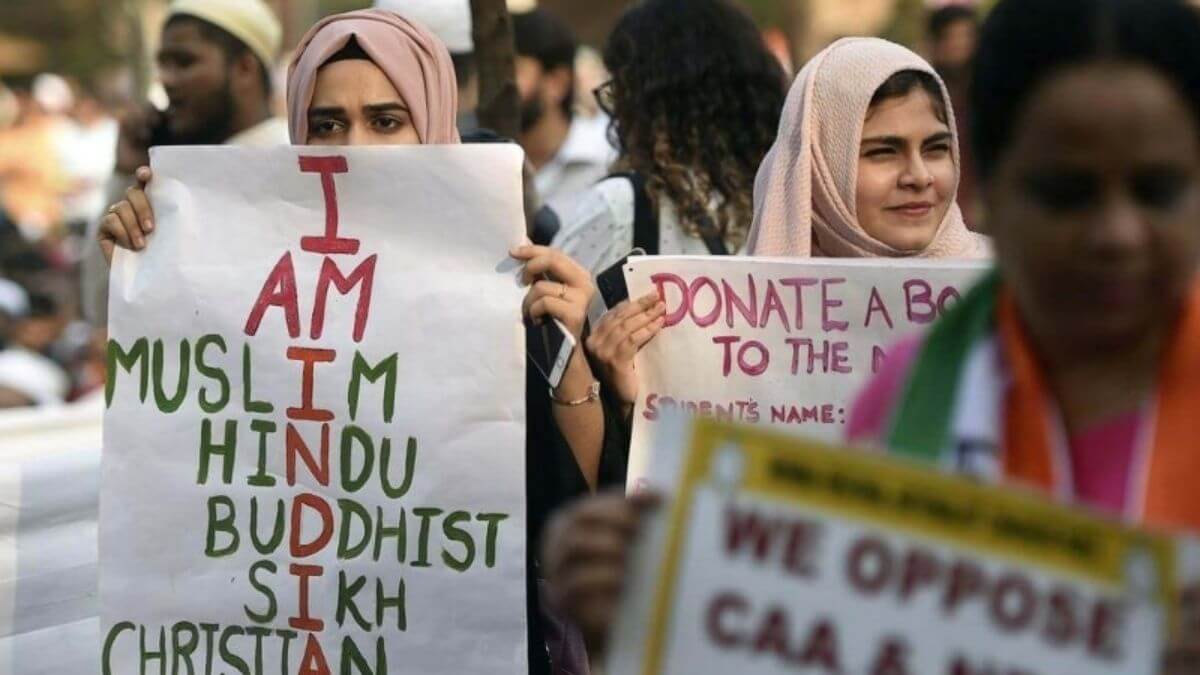In its newly released 2020 Report on International Religious Freedom, the United States (US) on Wednesday expressed concern about violence and discrimination against religious minorities in India.
The document, which is mandated by the US Congress, describes the state of religious freedom in countries across the world and highlights US policies to promote religious freedom globally. In its section dedicated to India, the text mentions issues related to the controversial Citizen Amendment Act (CAA), operational challenges faced by faith-based organisations in the country, and allegations made against Muslims for spreading COVID-19. The report states that US authorities discussed these matters with their Indian counterparts during their engagements over the year and “emphasised the importance the United States attaches to religious freedom and the responsibility of democracies to ensure the rights of religious minorities.”
“The [Indian] constitution provides for freedom of conscience and the right of all individuals to freely profess, practise, and propagate religion; mandates a secular state; requires the state to treat all religions impartially, and prohibits discrimination based on religion,” the report reads. In this regard, it notes the presence of laws (though inadequate) restricting religious conversions, and the rights of religious groups “to establish and maintain institutions for religious and charitable purposes, manage their own affairs in religious matters, and own, acquire, and administer property.” However, the document states that national and state laws make freedom of religion “subject to public order, morality, and health,” and points to various instances of the government not only failing to prevent or stop attacks on minorities but in some cases also instigating instability through “inflammatory public remarks.”
For instance, the report notes the ruling Bharatiya Janata Party’s (BJP) response to the conference held by the Islamic Tablighi Jamaat organisation in New Delhi last year, after media reported that six of the event’s attendees had tested positive for the virus. The Home Ministry initially attributed most of the spread of COVID-19 across the country to the event, which then led to BJP leaders and media outlets describing it as “Corona Jihad.” Separately, the document also mentions attacks on religious minorities through “cow vigilantism,” targeting those involved in cow slaughter or trade in beef. In terms of the functioning of faith-based organisations, the report talks about NGOs’ criticisms of the amendments to the Foreign Contributions Regulation Act (FCRA). Though the government has claimed that the law strengthens “oversight and accountability of foreign NGO funding in the country,” organisations claim that is placing limits on civil society by reducing the amount of foreign funding that could benefit NGOs and “adding onerous oversight and certification requirements.”
This is, of course, not the first time that India is coming under fire for violations of religious freedoms. Last month, the United States Commission on International Religious Freedom (USCIRF), for the second year in a row, urged the State Department to designate India a ‘Country of Particular Concern’ (CPC). In its 2021 report, the USCIRF said that conditions for religious freedoms in India “continued their negative trajectory” in 2020, and blamed the BJP-led government for promoting Hindu nationalist policies resulting in “systematic, ongoing, and egregious violations of religious freedom.”
The document further highlighted problematic incidents and policies such as the Hindu-Muslim mob violence in Delhi in February, the acquittal of all those involved in Babri Masjid’s demolition, efforts to prohibit interfaith marriages or relationships using the false narrative of “forced conversion,” and increasing restrictions on the operation of civil society organisations. It also noted that disinformation and hateful rhetoric often targeted at religious minorities was seen at the beginning of the COVID-19 outbreak as well. In addition, the document spoke of the government’s crackdown on dissent and attempts to detain and accuse people of sedition “for their actual or perceived criticism” of the government’s (in)actions.
Though India has not yet responded to Wednesday’s report, it has previously rejected the USCIRF’s criticisms as “biased and tendentious.”
US Expresses Concern About the Status of Religious Freedom in India
A new report highlights issues related to the controversial CAA, operational challenges faced by faith-based organisations in the country, and allegations made against Muslims for spreading COVID-19.
May 13, 2021

SOURCE: AFP
